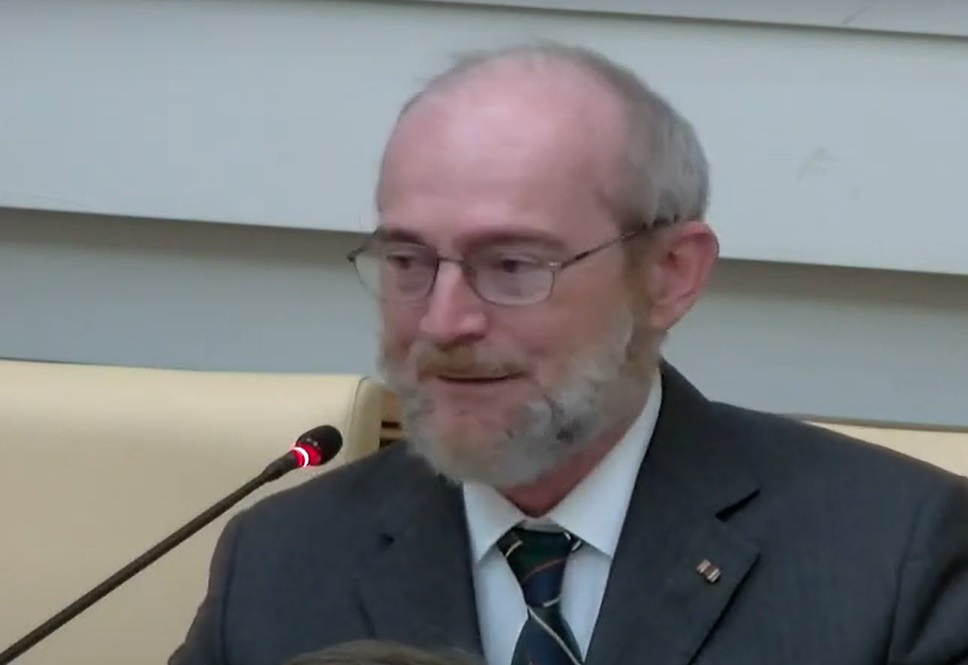China and India in focus at the Pontifical Academy of Social Sciences
On June 27 and 28 philosophers, jurists and economists from Beijing, Shanghai and Mumbai at the Vatican for a discussion on the Development Goals set by the UN. Prof. Riccardo Pozzo, among the organizers of the workshop, explains its meaning to AsiaNews: "Kant's perpetual peace functional to industry and trade in the 21st century is no longer enough. We need deeper foundations to seek together."
Rome (AsiaNews) - Next week a large group of European, American and Australian intellectuals gather together with their Chinese and Indian colleagues in the Vatican in a two day session on the great challenges of today's world from the point of view of growing global powers China and India.
The meeting organised by the Pontifical Academy of Social Sciences at its headquarters at the Casina Pio IV for June 27 and 28 is titled "Dialogue among civilizations on the commonalities" and will feature scholars from prestigious universities and think tanks in Beijing and Shanghai.
Prof. Riccardo Pozzo - a philosopher at the University of Tor Vergata in Rome and a member of the Pontifical Academy of Social Sciences - worked on the organization of this event and explains its meaning to AsiaNews: "The goal," he tells us, "is to help understand China and India from their point of view. This workshop aims to promote meaningful and sustainable dialogue and results-oriented cooperation. The idea is to bring together scientists, economists, sociologists and philosophers from a global perspective to address the challenge of achieving the Sustainable Development Goals, the common goals set forth by the UN for the near future and which are also the focus of the activities of the Pontifical Academy of Social Sciences. Think climate change, sustainability, social innovation, education, health care and urban regeneration, empowerment of women and youth, and specialization strategies for regional development."
Leading the way in this effort was Prof. Jeffrey Sachs, an American economist appointed by Pope Francis to the Vatican academy in 2021 and who has a long association with Beijing institutions behind him (he still serves as a consultant to the China Development Research Foundation, a public study center in China that focuses on good governance and development).
"Participants were identified by involving members of the Pontifical Academy of Social Sciences such as Prof. Stefano Zamagni, Sachs, myself. We also thank Dr. Steve Howard, president of the Global Foundation, for joining this project. As for Prof. Bai Tongdong (the first Chinese appointed by Pope Francis to this Vatican body earlier this month ed.) he was appointed when the preparation of the symposium was in full swing: we look forward to his contribution in the near future," Pozzo explains.
In the first session, introduced by Card. Peter Turkson, chancellor of the Pontifical Academy of Social Sciences, to discuss what "common goods" are and how to safeguard them will be China's Henry Wang, founder and president of the Center for China and Globalization, India's Aparna Tandon, an expert in cultural heritage conservation, and Italian economist Enrico Giovannini.
This will be followed by a series of panels dedicated to specific reflection on each of the Goals set by the UN for 2030. In the last panel discussion-the one devoted to "Peace, Justice and Strong Institutions" (Goal 16 on the UN agenda)-the Chinese voices that will speak will be those of philosopher Yang Guorong, of East China Normal University, who looks at these issues from a metaphysical perspective, and jurist Rupert Li.
"The great theoretical foundation for the search for peace in the 20th century," Pozzo comments, "was Kant's treatise 'Perpetual Peace.' That text, in essence, said: we want peace because industry and commerce need it. Today in the 21st century we know that this is no longer enough: the world needs peace, the earth needs peace. It is a much bigger perspective, which we must help each other to pursue together in a holistic perspective."
But is it possible, we ask, to have a frank dialogue on these issues regardless of thorny facts such as the harsh repression of all forms of dissent in China or the violence against minorities in India?
"The booklet prepared for the workshop," Prof. Pozzo replies, "makes it clear that the ethical prerequisites for a true dialogue are freedom and equality, both of which are mentioned in the document of the Congregation for Catholic Education to which we refer and in papal encyclicals. But the Pontifical Academy for Social Sciences is certainly not a body that can influence individual decisions of the government of the People's Republic of China or India's attitude toward minorities."
The discussion will result in the elaboration of a common text: "We always try to close our work with a concluding statement and we will do so this time as well," reports Riccardo Pozzo. However, the workshop is meant to be only the beginning of a path: reflection will go on especially in the university sphere, with some initiatives that are already starting: "At Tor Vergata, the university pastoral ministry has announced a competition on sustainability. At La Sapienza University doctoral students in Chinese studies have been involved; other initiatives, then, are involving the Pari Center for New Learning, which has been active for 20 years in Civitella Paganico in Tuscany."
14/03/2024 14:06
07/02/2018 11:31







.png)










